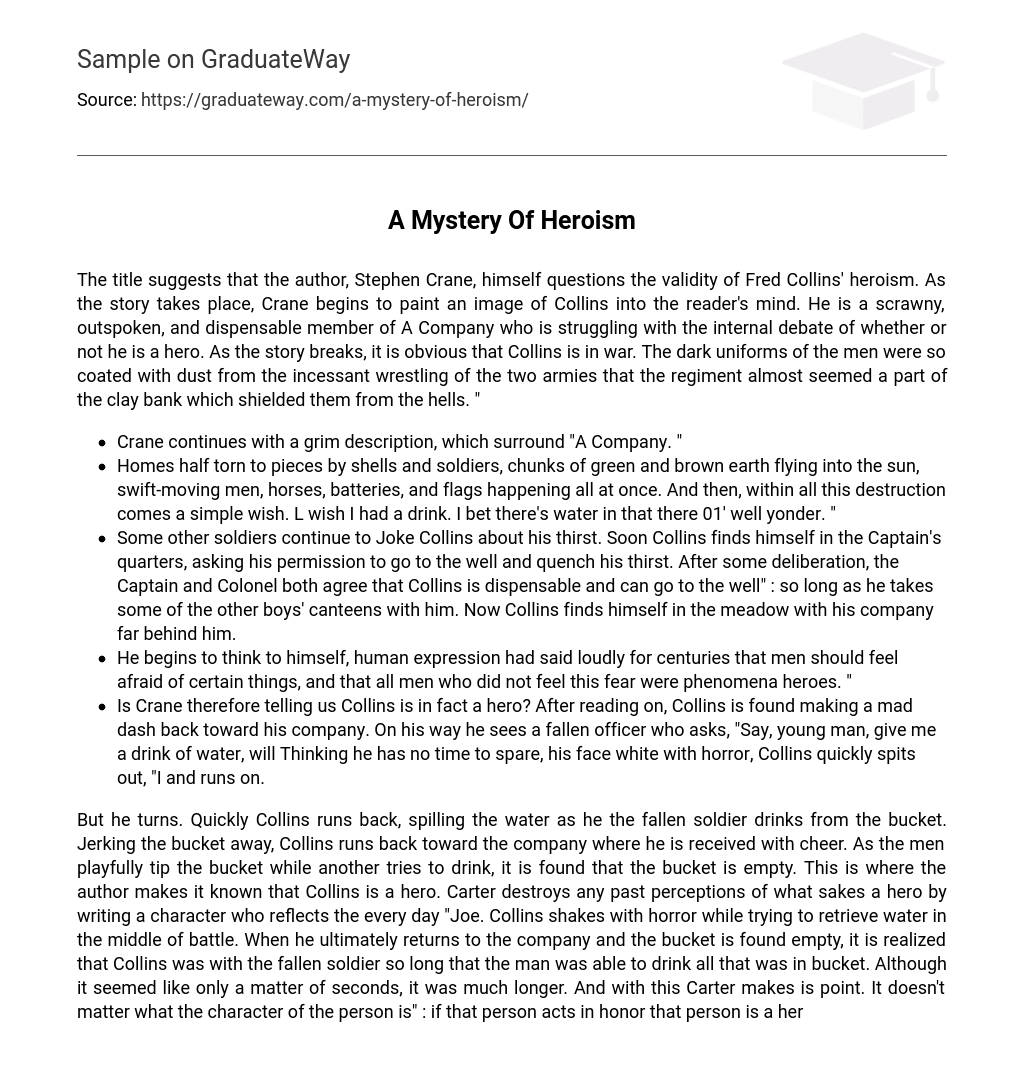The title implies that Stephen Crane, the author, himself doubts the authenticity of Fred Collins’ bravery. Throughout the story, Crane gradually reveals Collins’ characteristics to the readers. Collins is depicted as a thin, outspoken, and easily replaceable member of A Company who is grappling with the internal conflict of whether he possesses heroic qualities or not. As the narrative unfolds, it becomes evident that Collins is involved in a war. The soldiers’ dark uniforms were covered in so much dust from the constant fighting between the two armies that the regiment appeared to blend in with the clay bank that offered them protection from the horrors of war.
- Crane continues with a grim description, which surround “A Company. “
- Homes half torn to pieces by shells and soldiers, chunks of green and brown earth flying into the sun, swift-moving men, horses, batteries, and flags happening all at once. And then, within all this destruction comes a simple wish. L wish I had a drink. I bet there’s water in that there 01′ well yonder. “
- Some other soldiers continue to Joke Collins about his thirst. Soon Collins finds himself in the Captain’s quarters, asking his permission to go to the well and quench his thirst. After some deliberation, the Captain and Colonel both agree that Collins is dispensable and can go to the well” : so long as he takes some of the other boys’ canteens with him. Now Collins finds himself in the meadow with his company far behind him.
- He begins to think to himself, human expression had said loudly for centuries that men should feel afraid of certain things, and that all men who did not feel this fear were phenomena heroes. “
- Is Crane therefore telling us Collins is in fact a hero? After reading on, Collins is found making a mad dash back toward his company. On his way he sees a fallen officer who asks, “Say, young man, give me a drink of water, will Thinking he has no time to spare, his face white with horror, Collins quickly spits out, “I and runs on.
Collins rushes back and accidentally spills the water as he turns, while the fallen soldier drinks from the bucket. He quickly pulls it away and returns to the company where he is greeted with cheers. The men playfully tilt the empty bucket as another attempts to drink, establishing Collins as a hero according to the author’s perspective.
Carter challenges traditional ideas of heroism by presenting Collins, a character who represents ordinary individuals. In the midst of battle, Collins trembles in horror while trying to fetch water. When he finally returns and reveals that the bucket is empty, it becomes evident that he stayed with the fallen soldier for an extended period, allowing him to consume all its contents. Although it may have appeared like only a few seconds, it was much longer than that. This exemplifies Carter’s argument that heroism is not solely defined by one’s character but determined by their honorable actions.





